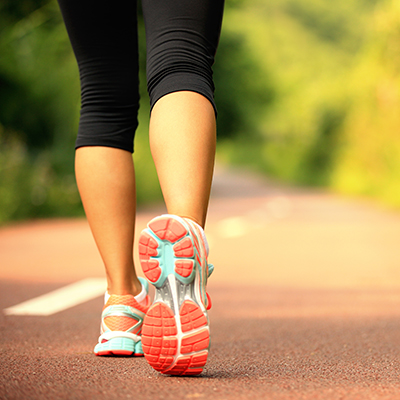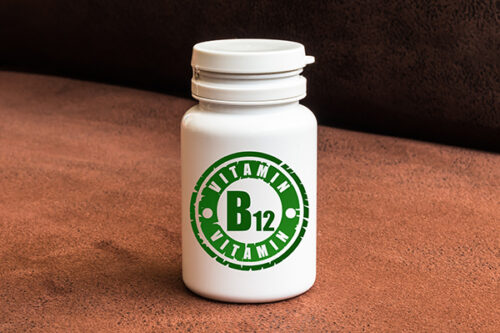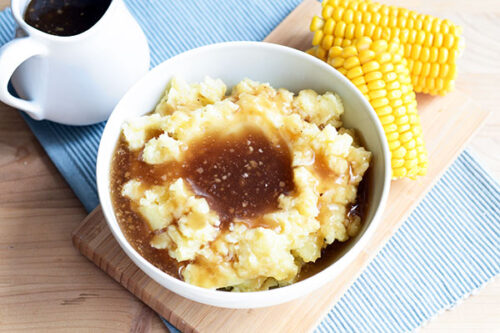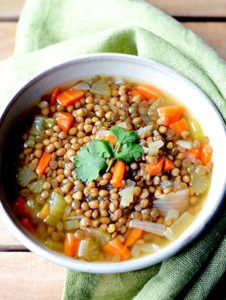Can Exercise Lower Cholesterol?

I meet people every week who are surprised and upset to find their cholesterol levels didn’t go down after starting an exercise program. They always ask if exercising or working out can lower their cholesterol and are shocked to hear me say it can’t.
The problem is that people think this way because exercise enthusiasts claim people who run marathons never have a heart attack—even though one out of every 100,000 marathon runners will experience cardiac arrest.
The famous runner and author of The Complete Book of Running, Jim Fixx, is an example of a man who made this claim. However, he died in 1984 from a heart attack at age 56. The poor man’s arteries were plugged solid with plaque.
The truth is physical activity and fitness will reduce your risk of cardiovascular disease (plus strokes and heart attacks). However, exercise alone doesn’t offer complete immunity or improve two of the most crucial factors for heart disease: overall and LDL (low-density lipoproteins) cholesterol, a.k.a bad cholesterol.
Can Working Out Lower Cholesterol? Let’s See What the Research Says about Cholesterol and Exercise
The November 7, 2002 issue of the New England Journal of Medicine published the latest research showing no change in total or LDL cholesterol with exercise.1 However, there were minor changes in other less critical risk factors.
Of the risk factors commonly measured, triglycerides(type of fat found in your blood) decreased with all levels of exercise by 20 to 60 mg/dl, and HDL (high-density lipoprotein, a.k.a “good cholesterol”) increased by 4.8 mg/dl only with a large amount of high-intensity exercise (equivalent to 20 miles a week of jogging). The subjects studied were overweight men and women who were asked to eat enough during the study so as not to lose weight.
Twenty years later, research still shows that exercise alone doesn’t impact LDL blood cholesterol levels. A study of low-to-moderate exercise’s effect on LDL cholesterol showed little to no improvement in LDL cholesterol levels.
Another study compared aerobic exercise with resistance exercise and found no difference in the control of glycemic (blood sugar) and lipid levels (cholesterol, LDL cholesterol, and HDL-cholesterol) between the two types of exercise. This result came from an analysis of multiple studies published in 2017 (a meta-analysis).
The Power of Diet
Data published in the scientific literature consistently shows the benefits of the low-fat, no-cholesterol McDougall Diet on blood cholesterol. Our 12-day program and exercise are only a small part of the intervention. We’ve found a 22 mg/dl (0.6 IU) improvement in cholesterol in seven days, and that’s with little or no emphasis on exercise increase.
Two independent long-term studies (12 months) showed a similar reduction in cholesterol levels is maintained for an entire year. 85% of people made permanent changes because of the dramatic positive improvements in their lives, and they loved the food.
Why You Must Be Careful Before Starting Intense Exercise
Exercise has clear health benefits, such as:
- Losing weight
- Lowering blood pressure
- Improving mood
- Strengthening bones
- Building muscles
- Improving insulin sensitivity
- Lowering blood sugars
Therefore, it’s essential not to discount exercise because it lacks cholesterol-lowering effects. Studies show that exercise, combined with other preventive measures like diet, can affect cholesterol levels.
People who exercise, however, must understand that exercise is only one part of the equation for excellent health–you can’t ignore diet.
Starting an intensive exercise program while in poor health could be a prescription for trouble. For those who are out of shape, intense exercise can even cause a heart attack. Heavy exercise may disrupt volatile plaque in one of the heart arteries, resulting in complete closure of the artery—and death of the heart muscle (a heart attack).
Maintaining a healthy diet before launching an intense exercise regimen will help stabilize the plaque and prevent its rupture. (See the McDougall Program for a Healthy Heart book.)
I encourage you to start a regular exercise program, but slowly build your exercise up at a comfortable pace. You can usually tell if you’re overexerting if you have difficulty exercising and talking simultaneously. Along with exercising, eat a low-fat, pure plant-based diet. This regimen will help you safely and effectively get on a path to excellent health.
How to Start and Stay on a Healthy Diet
Not sure where to start when changing to a plant-based diet? Don’t worry; we can help you with that. We offer various programs to accommodate budgets and lifestyles.
Here are just a few examples.
The McDougall Program
The 12-day online program is perfect for those who need help starting and maintaining a whole-food, plant-based lifestyle. The program has lectures, a meal plan, Q&A sessions, and ongoing assistance from a support specialist.
With McDougall, Food is Medicine
If you’re seeking more information about eating a whole-food diet and how it can help you get your health back—this program is for you. The program includes five lectures on various topics that show how improving your diet can reduce obesity, cholesterol, heart disease risk, and more.
The lecture topics include:
- Weight Loss
- Diabetes
- Cardiovascular Health
- Cancer
- Essential Nutrients
McDougall Mini Courses
Are you looking for something smaller so you can dip your toe into the whole-food, plant-based world? We offer various smaller courses, like the following:
- Mary’s Mini-McDougall Diet®
- The Truth About Food
- Maximum Weight Loss Program
- Aging Gracefully
Diet and Exercise Is the Ideal Combination
While exercise is essential, it’s not a magical cure for poor eating habits. You’ll also need to maintain a healthy diet to lower your cholesterol.
But your health will improve if you study nutrition, learn how various foods affect your body, and exercise safely. With determination and time, you’ll feel better and develop healthy eating habits to last a lifetime.
References:
1) Kraus WE. Effects of the Amount and Intensity of Exercise on Plasma Lipoproteins. N Engl J Med.2002 Nov 7;347(19):1483-92.
2) McDougall J. Effects of 7 Days on an Ad Libitum Low-Fat Vegan Diet: The McDougall Program Cohort. Nutr J 13, 99 (2014).
3) Yadav V. Low-Fat, Plant-Based Diet in Multiple Sclerosis: A Randomized Controlled Trial. Multiple Sclerosis and Related Disorders 9 (2016) 80–90.
4) Wright N. The BROAD study: A Randomised Controlled Trial Using a Whole Food Plant-Based Diet in the Community for Obesity, Ischaemic Heart Disease or Diabetes. Nutr & Diabetes 7, e256 (2017).
5) Mittleman MA, Maclure M, Tofler GH, Sherwood JB, Goldberg RJ, Muller JE. Triggering of Acute Myocardial Infarction by Heavy Physical Exertion — Protection Against Triggering by Regular Exertion. N Engl J Med 1993;329:1677-1683.
6) Willich SN, Lewis M, Lowel H, Arntz H-R, Schubert F, Schroder R. Physical Exertion as a Trigger of Acute Myocardial Infarction. N Engl J Med 1993;329:1684-1690.
7) Curfman GD. Is Exercise Beneficial — or Hazardous — to Your Heart? N Engl J Med 1993;329:1730-1731.
8) Cybelle N. Effectiveness of Resistance Exercise Compared to Aerobic Exercise without Insulin Therapy in Patients with Type 2 Diabetes Mellitus: a Meta-Analysis. Braz J Phys Ther. 2017 Nov-Dec; 21(6):400-415.)
9) Clifton P. Diet, exercise and weight loss and dyslipidemia. Pathology. 2019 Feb;51(2):222-226.
Recommended Articles

Vitamin B12 Deficiency—the Meat-eaters Last Stand

Our Top 10 Favorite Ways to Eat Potatoes







